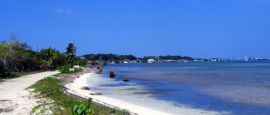Honduras Health Care and Vaccinations
| Title | Special precautions |
|---|---|
| Diphtheria |
Sometimes |
| Hepatitis A |
Yes |
| Malaria |
Sometimes* |
| Rabies |
Sometimes |
| Tetanus |
Yes |
| Typhoid |
Yes |
| Yellow Fever |
No** |
Health insurance is recommended. The main hospitals are in Tegucigalpa and San Pedro Sula. However all the large towns have a hospital. Mosquito nets are recommended for coastal areas to minimise the risk of malaria and dengue fever. There are scuba diving recompression chambers on the islands of Roatan and Utila.
All water should be regarded as being potentially contaminated. Water used for drinking, brushing teeth or making ice should first be boiled or otherwise sterilised. Milk is unpasteurised in rural areas and should be boiled. Powdered or tinned milk is available and is advised. Avoid dairy products that are likely to have been made from unboiled milk. Only eat well-cooked meat and fish. Vegetables should be cooked and fruit peeled. Avoid meat and dairy when eating from markets or street vendors.
Do you have any Feedback about this page?
© 2026 Columbus Travel Media Ltd. All rights reserved. No part of this site may be reproduced without our written permission, click here for information on Columbus Content Solutions.








 You know where
You know where